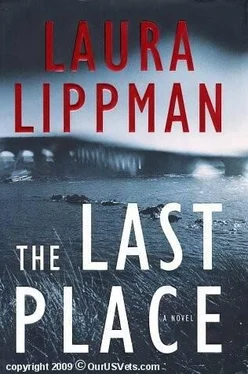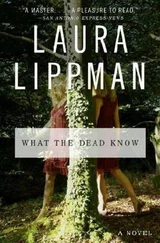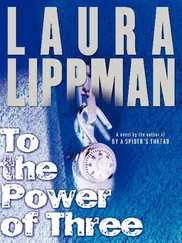“But you looked at the partner, right? You checked his alibi, ran records checks, made sure there was no ongoing strife in the relationship.”
“That guy? Jesus, if you met him, you’d know he couldn’t pull off something like that. Not even if he hired someone to do it. He was a mess. Said they had a fight right before it happened-”
Tess looked up from her notes.
Mutter shook his head. “About running in the rain. He told him not to do it. And then he felt bad, because that was the last conversation they ever had. I never understand why people feel so bad about those things. I mean, if your life really passes before your eyes, then you remember the happy stuff too, right?”
“I don’t know,” Tess said. “I imagine a lot of people die grumpy. I know I will. So what happened to the partner?”
“Moved away. To California, I think, some place he has family. A lawyer is trying to untangle the estate. The doctor had money, but not as much as you’d think. Most of his net worth was in the house. They sold it and put the profits in escrow. You got a will?”
The question startled her. “I’m only thirty-one.”
“I’m thirty-eight. Had one drawn up when my first kid was born, when I was twenty-five. It’s inconsiderate, not looking after your affairs. Think of it that way.”
“I guess I don’t want to think of it at all.”
“Exactly,” Mutter said, waggling a finger in her face. “That’s what the doctor did. Which is why his partner had to move back to California without a cent.”
Back on the highway, heading toward Baltimore and then beyond on I-95, Tess wondered who else on her list had forgotten to make a will. Tiffani Gunts had nothing, but she did have a daughter. Did she have a life insurance policy, a trust? Whatever Hazel Ligetti owned had probably gone to the state, to become one of those mysterious unclaimed accounts advertised by the comptroller’s office. Julie Carter was alive and, if she kept going down the reckless path she appeared to be set on, wasn’t likely to leave much behind for her heirs. Four down, one to go.
Lucy Fancher, you are the last remaining hope of my hopeless amateurs. If I can’t find a domestic angle to your death, it’s a shutout.
Still, she should have thought to ask about wills, Tess admonished herself, pulling off in Perryville when she saw a Dairy Queen sign beckoning to her. Here she was, grading local cops on their ability to investigate homicides and she had neglected a basic check.
By day’s end, she’d regret not making another basic check. But at least she had considered, however fleetingly, pulling the autopsy reports for her victims.
It just hadn’t occurred to Tess that someone who died of a gunshot wound might have been discovered in pieces.
It was late afternoon by the time Tess found the cottage where Lucy C. Fancher had lived. It wasn’t much, but it was all Tess had. Perhaps Lucy had felt the same way. As best as Tess could determine, there were no other Fanchers in the area-not on the voter registration rolls or in the local courthouse files, either as defendants or plaintiffs. The only Fancher listed was Lucy, and the only public record of her existence was a speeding ticket. She was named in a warrant for not paying the fine, the interest on which had been compounding steadily since her death.
Going 50 in a 40 mph zone. Conditions: Dry and clear. Tess checked the date on the ticket. October 29, three and a half years ago. Two nights before Lucy Fancher died.
She looked at the articles from the local paper, the Elkton Democrat. The accounts of Fancher’s murder seemed incomplete to Tess, but she chalked that up to the inexperience of the local reporter. Margo Duncan probably hadn’t written many homicide stories. Still, all the more reason for the paper to go hog-wild with the story, instead of running these strangely prissy mishmashes that raised far more questions than they answered. The first article said only that state police were investigating the apparent homicide of Lucy C. Fancher. A follow-up, which appeared two days later, spoke of a “break” in the case and said Cecil County officers were now working with the state police and the Maryland Transportation Authority’s law enforcement agents. The second article noted that the cause of death, pending an autopsy, was a gunshot wound to the chest. But Margo Duncan provided no information about the break or why these three disparate agencies had joined forces.
And that was that. A year after Lucy Fancher’s death, the paper ran the obligatory anniversary story about her unsolved homicide, “which rocked the bucolic community of North East.” Lucy had been a student at Cecil County Community College and worked part-time for a small real estate firm. She seemed to have no friends, or no friends the newspaper could find, and the officers involved in the case issued terse no-comments. Clearly, something was being withheld-details the paper wasn’t reporting or wouldn’t report. A sexual assault? Evidence that only the killer could know? Tess supposed she could drop by the paper and ask to speak to Margo Duncan, but it was unlikely that the reporter was still there. Three years was an eternity at a small-town newspaper.
So she looked for Lucy Fancher’s last-known address instead, getting lost in a series of meandering roads that dead-ended at the river.
The house sat off by itself, in a grove of trees. It was nothing special, a dull rectangle with rust-red asbestos shingles for siding, and it appeared to have been vacant for some time. A generic For Sale sign, peppered with dirt and water stains, listed to one side at the driveway’s edge. Tess got out and walked around the small house, largely for something to do. The house may have been plain, but the view from the rear was extraordinary, all water and sky. The trees, a mix of sweet gums and evergreens, formed a natural screen from the houses on either side. No water access, but it was probably only a matter of time before Fancher’s landlord sold the place. Expensive new houses were sprouting up all over these narrow lanes. The lot must be worth a fortune.
“You interested?”
The voice, hoarse and rusty, made Tess jump. She turned to find a man in his forties with a weatherbeaten face beneath an old Caterpillar gimme cap. Grimy and unkempt, he looked like a drifter, but she could hear an engine running on the other side of the house. North East must be a small enough place for people to stop at the sight of a strange car.
“Excuse me?”
“You interested in buying the place?” The shadows were so deep here, under the trees, that it was hard to see much of his face. “Owner will give you a good deal on it. It’s been empty for a while.”
“Since-” She stopped to think about how to phrase it, how much she should reveal. “Since when?”
The man scratched his chin. “Four years? Three? Around that. I live just up the road.”
“It’s a great location. I’m surprised someone hasn’t snatched it up.”
“Owner got greedy, I think. People had a lot of money when he put it on the market. Then they didn’t, and he wanted to sell, bad. Now, every time he gets a contract it falls through. People talk.”
“What do you mean?”
“Something happened here.”
His country terseness was wearying, and Tess decided to speed things up.
“The girl who lived here”-she figured girl would be the local parlance for a woman of twenty-three-“she was killed, right?”
He nodded.
“Did you know her?”
“Just to say hello.” He raised his hand to demonstrate, throwing his left arm up as if waving from a car.
“Did she have a boyfriend?”
“A fellow lived with her. I guess that made him a boyfriend.”
Читать дальше












